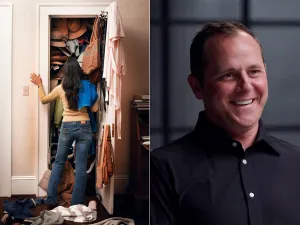Interviews from the Alliance of Youth Movements summit: Daniel Teweles.STAND, the student-led arm of the Genocide Intervention Network, began in 2004 as an effort to end the genocide in Darfur, Sudan. Now STAND works not just to end mass atrocities in places like Sudan, Burma, and the Democratic Republic of the Congo, but to prevent them, and has grown to include 800 active chapters in high schools and colleges nationwide, making it one of the largest student organizations in the country. Guest blogger Erin Mazursky sat down with Daniel Teweles, STAND’s National Student Coordinator, during the Alliance of Youth Movements summit in Mexico City to talk about the Millennial generation-people born after 1980-and how to get through to senators.ERIN MAZURSKY: So, you get to work with some incredibly passionate students doing very important work. What do you like most about your job?DANIEL TEWELES: Hands down, making connections between seemingly disparate people. Everyone can get behind the work that we’re doing whether it’s high school students in Kansas or nursing students in New Jersey.EM: Can you tell us about an upcoming project to look out for?DT: What I’m most excited about is our Pledge2Protect campaign, specifically the pledge on camera partnership with Witness. It’s the first time video has been used for advocacy on this scale. On the last day of our upcoming conference, taking place in a couple of weeks here in Washington, D.C., we’re sending people up to Capitol Hill to meet with all 100 senators. With them will be a video of constituents from each of their districts. We are replacing the talking policy heads that are usually talking about these issues with the Senator’s high school science teacher, their biggest donor, the mayor of their town.EM: We hear a lot about the Millennial generation being geared towards making a difference. Do you think is there is something unique about this generation of youth?DT: Yes and no. I don’t think there’s anything unique about this generation, but I think there’s something unique in the time that they’re growing up and the tools available to them. What happens 10,000 miles away affects us now. In the past we wouldn’t have known about it or wouldn’t have known to care, but now we have the tools to be connected and to act.EM: STAND has been a force against genocide for the last five years. How do you keep the momentum going on a crisis that seems unending?DT: What STAND does really well, and what helps our staying power, is that there’s no typical genocide activist. We attract students of all ages and backgrounds, and as a result we’re shaping future leaders-not just anti-genocide activists but activists in general.EM: You were surrounded by 40 some like-minded youth at the summit in Mexico City. Name someone who made a big impression on you.DT: Prashan de Visser from Sri Lanka Unites. Despite my work, I’m generally a cynic. It takes a lot to inspire me, but his life story and the work that he’s doing is truly amazing. It’s replicable, and can really be used as a model throughout the world. Seeing groups like that and the work of Jaime Carroll and Brian Center from A Better LA, where their work is scalable, challenged me to continue to think of new and innovative ways for social change. Seeing groups that are coming up with solutions that can be used everywhere was really cool.Erin is a proud member of the Millennial generation, an independent nonprofit and political consultant, a fellow at the Truman National Security Project, and a contributor to the GOOD column Canapés and Kalashnikovs.
Tags
advertisement
More for You
-
14 images of badass women who destroyed stereotypes and inspired future generations
These trailblazers redefined what a woman could be.
Throughout history, women have stood up and fought to break down barriers imposed on them from stereotypes and societal expectations. The trailblazers in these photos made history and redefined what a woman could be. In doing so, they paved the way for future generations to stand up and continue to fight for equality.
-
Why mass shootings spawn conspiracy theories
Mass shootings and conspiracy theories have a long history.
While conspiracy theories are not limited to any topic, there is one type of event that seems particularly likely to spark them: mass shootings, typically defined as attacks in which a shooter kills at least four other people.
When one person kills many others in a single incident, particularly when it seems random, people naturally seek out answers for why the tragedy happened. After all, if a mass shooting is random, anyone can be a target.
Pointing to some nefarious plan by a powerful group – such as the government – can be more comforting than the idea that the attack was the result of a disturbed or mentally ill individual who obtained a firearm legally.
advertisement







